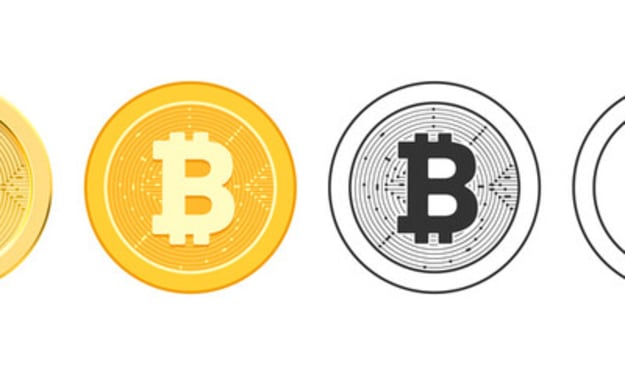Ethereum: The Future of Digital Banking and Transactions
Ethereum has emerged as one of the most exciting technologies in the world of finance, offering a decentralized platform for digital transactions and smart contracts. Unlike traditional banking systems that rely on intermediaries to process transactions, Ethereum operates on a peer-to-peer network, allowing users to transact directly without the need for intermediaries. In this article, we'll explore the role Ethereum is playing in the world of digital banking, and how it may shape the future of finance.

Ethereum has emerged as one of the most exciting technologies in the world of finance, offering a decentralized platform for digital transactions and smart contracts. Unlike traditional banking systems that rely on intermediaries to process transactions, Ethereum operates on a peer-to-peer network, allowing users to transact directly without the need for intermediaries. With its distributed ledger technology and smart contract capabilities, Ethereum has the potential to revolutionize the way we conduct transactions, making them faster, more secure, and more efficient. In this article, we'll explore the role Ethereum is playing in the world of digital banking, and how it may shape the future of finance.
1. Introduction to Ethereum and its Role in Digital Banking

What is Ethereum?
Ethereum is a decentralized blockchain platform that runs smart contracts and decentralized applications (dApps). It was created in 2015 by Vitalik Buterin to address some of the limitations of Bitcoin. Unlike Bitcoin, which is primarily used as a digital currency, Ethereum enables developers to build decentralized applications on top of its blockchain.
The Rise of Digital Banking and Transactions
With the increasing use of technology, digital banking has become more popular. Consumers now have more options for their financial needs, from mobile payments to online banking. However, traditional banking systems and transaction methods still face challenges such as high fees, slow settlement times, and lack of transparency.
Ethereum aims to address these challenges by providing a decentralized, open-source platform that enables faster, cheaper, and more secure transactions.
2. Understanding Ethereum's Decentralized Ecosystem
The Blockchain technology behind Ethereum
Ethereum is built on top of a blockchain, a distributed ledger that records all transactions made on the network. It uses a proof-of-work consensus mechanism to validate transactions and secure the network.
What is a Decentralized Ecosystem?
A decentralized ecosystem is one in which no single entity has control over the network. Instead, the network is run by a community of nodes that validate transactions and maintain the integrity of the network.
Ethereum's decentralized ecosystem enables developers to create dApps and smart contracts that run on the network without the need for intermediaries such as banks or financial institutions.
Ethereum Nodes and Consensus Mechanisms
Nodes are computers that run the Ethereum software and validate transactions on the network. There are two types of nodes: full nodes, which store a complete copy of the blockchain, and light nodes, which only store a portion of the blockchain.
Ethereum currently uses a proof-of-work consensus mechanism, but is transition to a proof-of-stake mechanism called Ethereum 2.0. Proof-of-stake will reduce energy consumption and increase transaction speed.
3. Smart Contracts: The Backbone of Ethereum
What are Smart Contracts?
Smart contracts are self-executing contracts that are coded to automatically enforce the terms of an agreement. They run on Ethereum's blockchain and eliminate the need for intermediaries.
How Smart Contracts Work on Ethereum
Smart contracts on Ethereum are stored on the blockchain and executed by nodes on the network. They are written in programming languages such as Solidity and can be used to create dApps for a variety of industries, from finance to supply chain management.
Benefits and Limitations of Smart Contracts
Smart contracts have the potential to increase efficiency, reduce costs, and eliminate intermediaries. However, there are also limitations to the technology, such as the need for accurate coding and the lack of legal recognition in some jurisdictions.
4. Ethereum's Potential to Revolutionize Digital Transactions

Current Limitations of Traditional Banking Systems and Transaction Methods
Traditional banking systems and transaction methods face challenges such as high fees, slow settlement times, and lack of transparency.
How Ethereum can Improve Digital Transactions
Ethereum's decentralized, open-source platform enables faster, cheaper, and more secure transactions. Smart contracts eliminate intermediaries and increase efficiency, while the use of a blockchain ensures transparency and security.
Case Studies of Ethereum in Action
Ethereum is being used in various industries, from finance to supply chain management. For example, the World Food Programme is using Ethereum to distribute aid to refugees, and JP Morgan is using Ethereum to develop its own blockchain-based platform. As more industries adopt Ethereum and other blockchain technologies, the potential for revolutionizing digital transactions continues to grow.
5. Ethereum vs Bitcoin: What Sets Them Apart
Digital currencies have been revolutionizing the way we think about money and transactions. Two of the most popular cryptocurrencies, Ethereum and Bitcoin, have been making waves in the world of finance. But what sets them apart from each other?
Comparing Ethereum and Bitcoin
At a basic level, both Ethereum and Bitcoin are digital currencies that operate on blockchain technology. However, the similarities largely end there.
Bitcoin was designed to be a decentralized digital currency used for transactions. Its main function is to allow people to transfer value without relying on traditional financial institutions. Bitcoin transactions are completely transparent and anonymous, which makes it great for international transfers and personal use.
Ethereum, on the other hand, was designed to be a platform for creating decentralized applications (dApps). The Ethereum blockchain can be used to build and execute smart contracts, decentralized exchanges, and other applications. The currency used to power these applications is called Ether (ETH).
Key Differences in Functionality and Purpose
The biggest difference between Ethereum and Bitcoin is their functionality and purpose. Ethereum is much more versatile and can be used for a variety of purposes beyond just being a digital currency. Bitcoin, on the other hand, is primarily used for transactions and is limited in its functionality.
Ethereum's smart contract capability allows for the creation of decentralized applications that can automate complex processes. This functionality makes Ethereum a powerful tool for building decentralized finance applications.
How Ethereum May Outperform Bitcoin in the Future
Ethereum's versatility and functionality have led some experts to believe that it may outperform Bitcoin in the future. As the demand for decentralized finance applications grows, more developers may flock to Ethereum to build innovative new projects. Additionally, Ethereum has a much faster transaction speed than Bitcoin, which could make it more appealing for large-scale transactions.
6. Overcoming the Challenges of Implementing Ethereum in Banking
While Ethereum has many advantages over traditional banking systems, there are still some obstacles that need to be overcome before it can be widely adopted.
Regulatory Obstacles and Legal Uncertainties
One of the biggest challenges for Ethereum in banking is regulatory compliance. The lack of clarity around the legal status of digital currencies makes it difficult for banks to implement Ethereum into their systems. In some countries, digital currencies are outright banned, while in others, they are subject to strict regulation and oversight.
Technical Barriers and Interoperability Challenges
Another challenge is technical interoperability. Currently, the Ethereum blockchain is not compatible with traditional banking systems, which makes it difficult to integrate. Additionally, the Ethereum blockchain is still fairly new, and there are some technical challenges that need to be overcome before it can be widely used by banks.
Scalability Issues and Network Congestion
Finally, scalability is a major issue for Ethereum and other digital currencies. As more transactions are added to the blockchain, the network can become congested, slowing down transaction speeds and driving up fees. This makes it difficult to use Ethereum for large-scale transactions.
7. Future Outlook: Ethereum's Impact on Traditional Banking
Despite the challenges that need to be overcome, Ethereum has the potential to have a significant impact on traditional banking.
Potential Disruption in Traditional Banking and Financial Services
Decentralized finance applications built on the Ethereum blockchain could significantly disrupt traditional banking and financial services. These applications could automate complex financial processes, reducing the need for human intermediaries and lowering transaction costs.
New Opportunities for Decentralized Finance (DeFi)
In addition to disrupting traditional banking, Ethereum could also create new opportunities for decentralized finance (DeFi). DeFi applications could allow people to access financial services without relying on traditional banks. This could be a game-changer for people who live in countries with underdeveloped financial systems.
Emerging Trends and Predictions for Ethereum's Future
As Ethereum continues to gain popularity, experts predict that the demand for DeFi applications will grow. Additionally, new innovations in blockchain technology could make it easier to scale Ethereum and integrate it with traditional banking systems.
8. Conclusion and Final Thoughts on Ethereum's Potential in Digital Transactions

Summary of Ethereum's Key Features and Advantages
Ethereum's smart contract capability and versatility make it a powerful tool for building decentralized applications. Its fast transaction speeds and low fees make it an attractive option for large-scale transactions. Additionally, Ethereum has the potential to disrupt traditional banking and create new opportunities for decentralized finance.
Evaluating the Risks and Rewards of Adopting Ethereum for Banking
While there are certainly risks associated with adopting Ethereum for banking, the potential rewards are significant. By automating complex financial processes and reducing the need for human intermediaries, banks could significantly reduce their costs and improve efficiency.
Final Thoughts on the Future of Digital Transactions with Ethereum
Overall, the future of digital transactions looks bright with Ethereum. As more people become interested in decentralized finance and blockchain technology continues to evolve, Ethereum could become a major player in the world of finance. Despite the challenges that need to be overcome, the potential rewards are simply too great to ignore.
In conclusion, Ethereum is a promising technology that has the potential to transform the banking and finance industry as we know it. With its decentralized ecosystem, smart contracts, and other advanced features, Ethereum offers a secure and efficient platform for digital transactions. While there are challenges to overcome in implementing Ethereum into traditional banking systems, the benefits of this technology cannot be ignored. As we move towards an increasingly digital and decentralized world, it's clear that Ethereum is well-positioned to play a key role in shaping the future of finance.
About the Creator
Krishna raj
"If your dreams don't scare you, they're too SMALL"






Comments
There are no comments for this story
Be the first to respond and start the conversation.